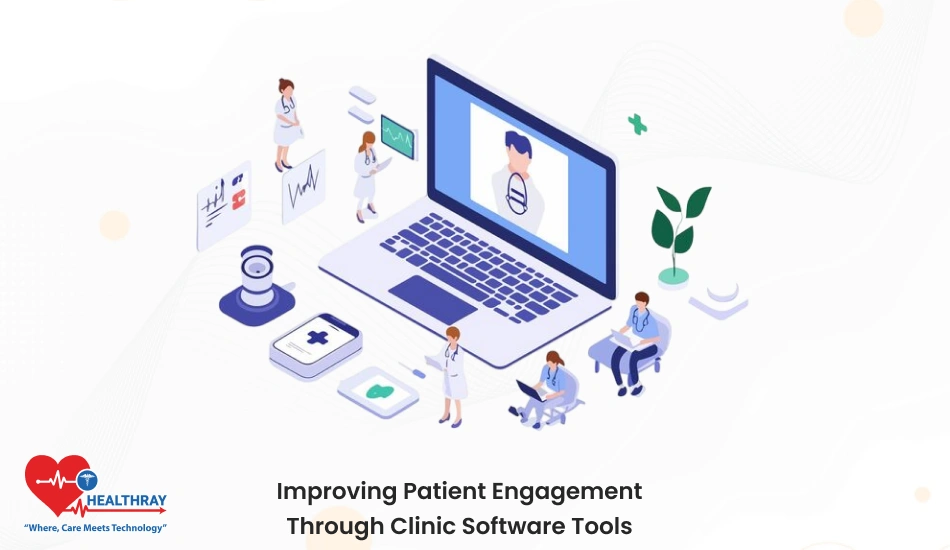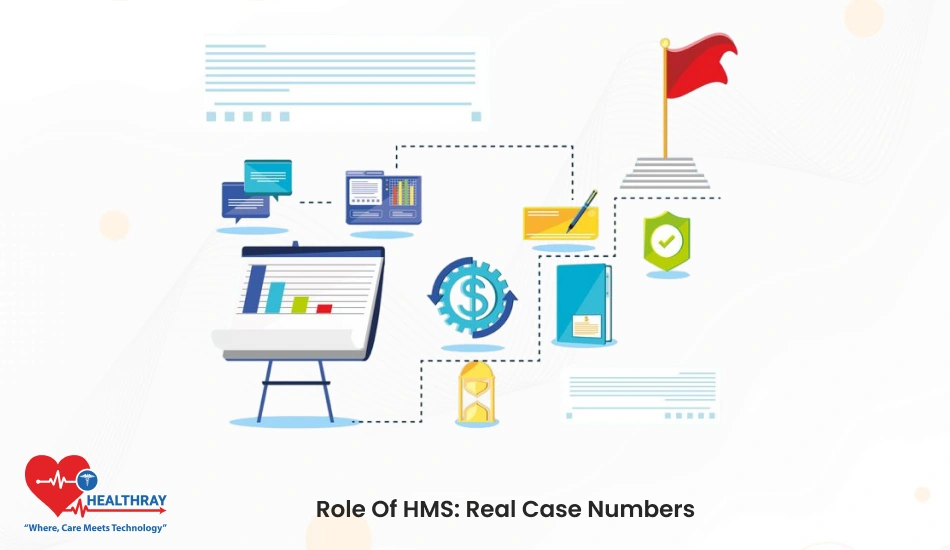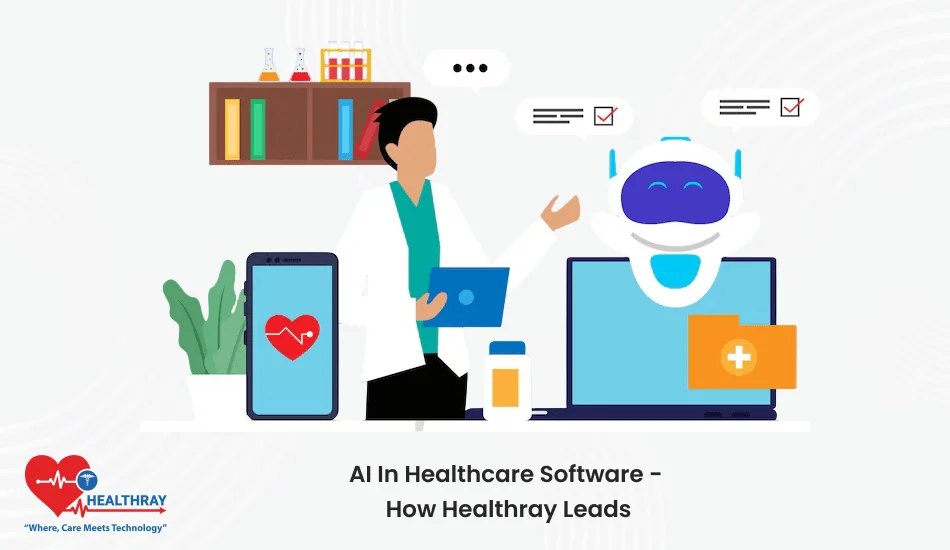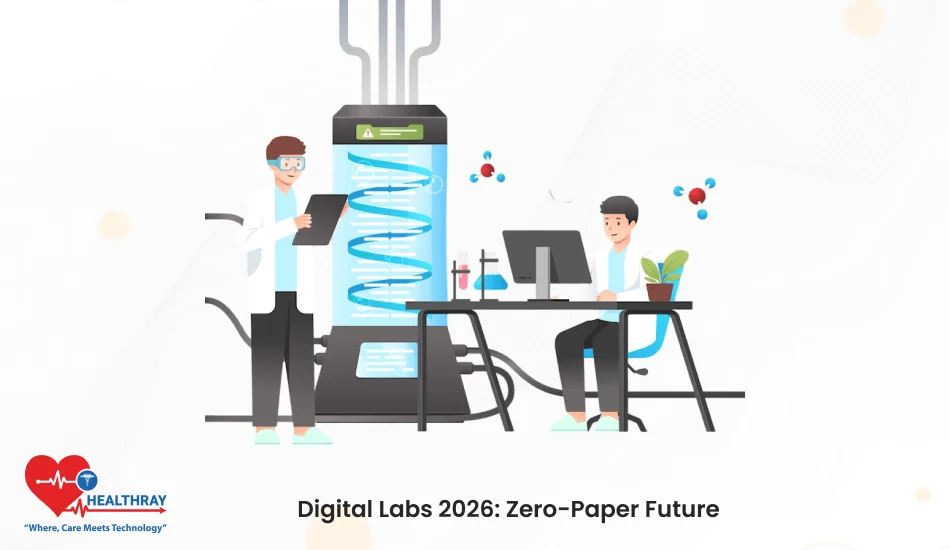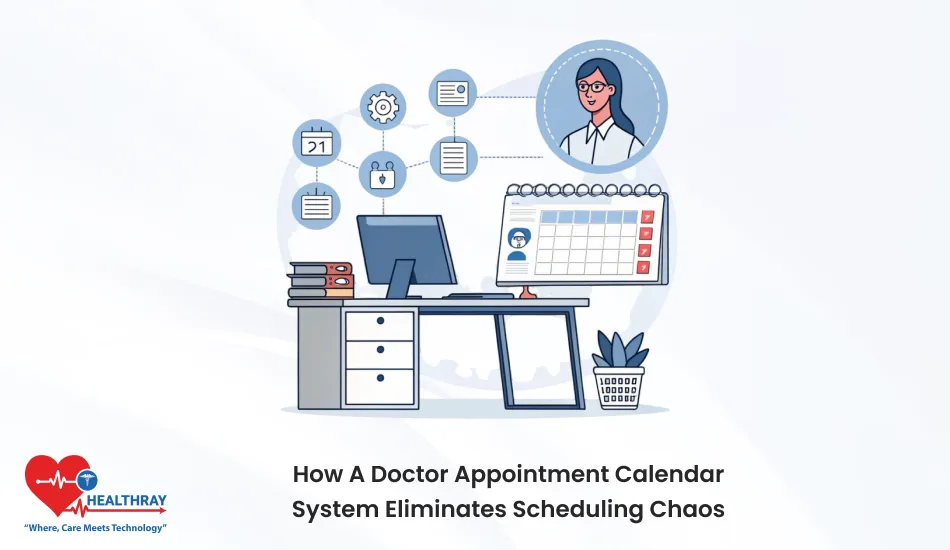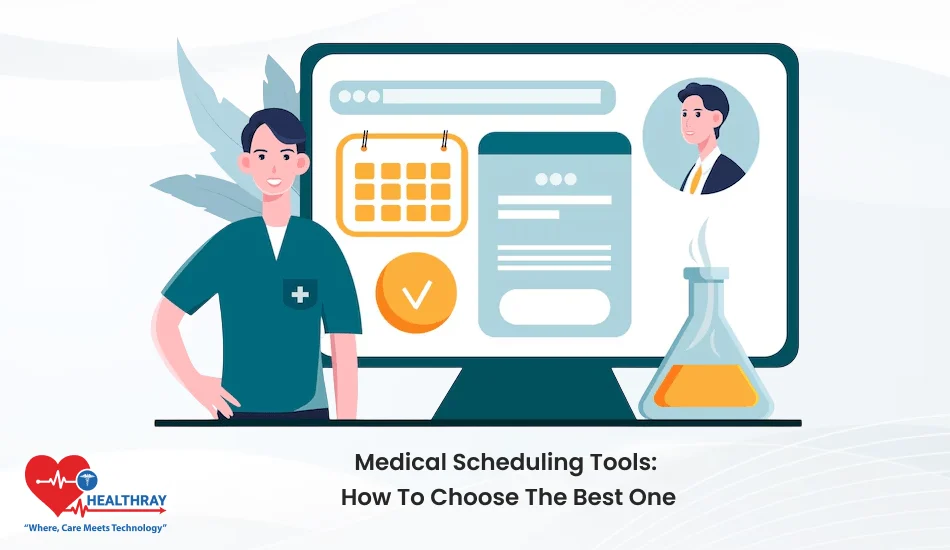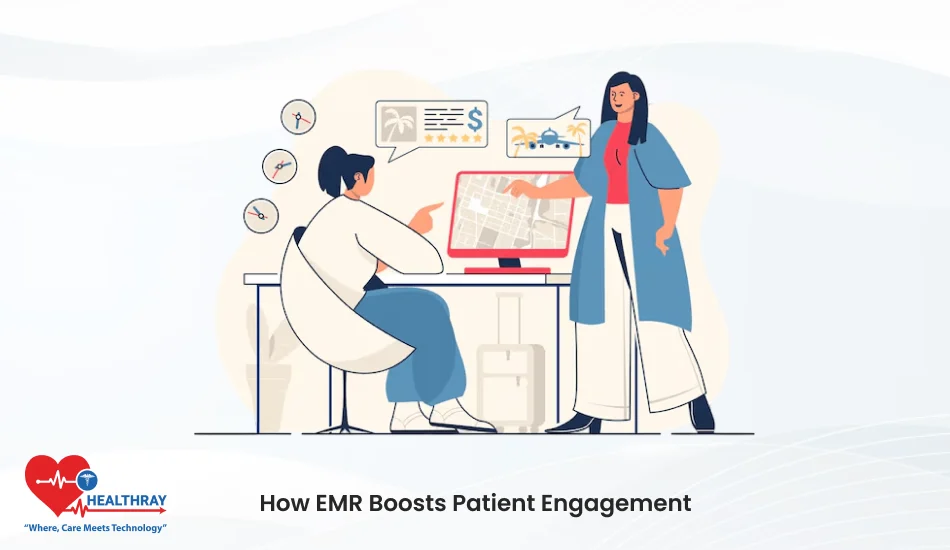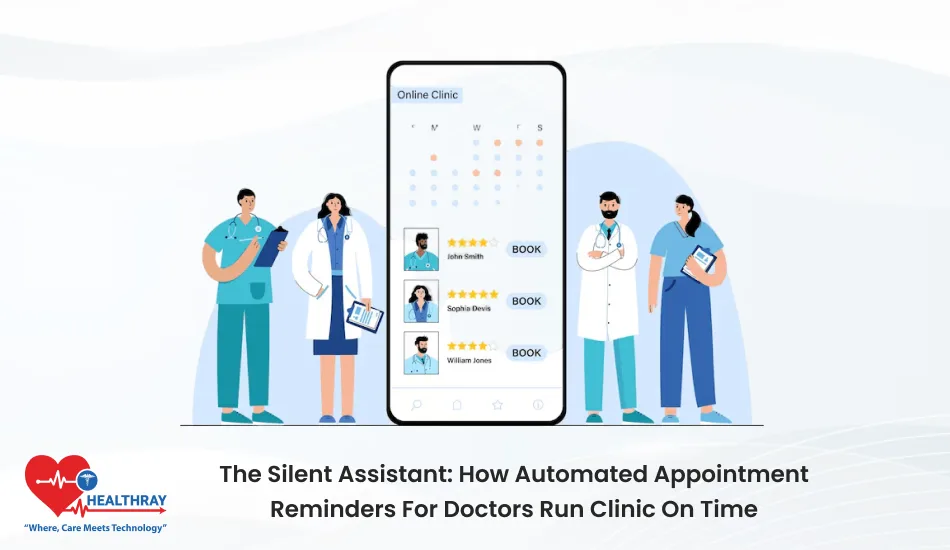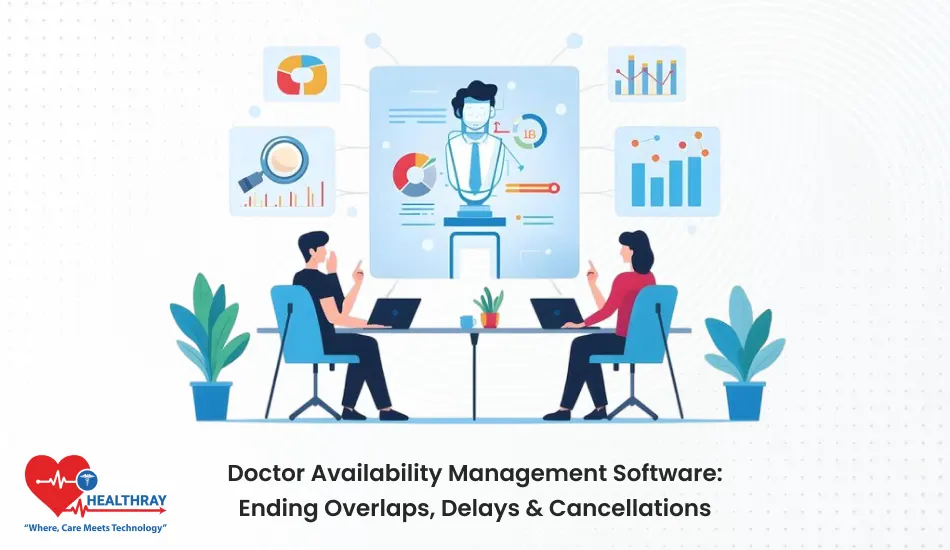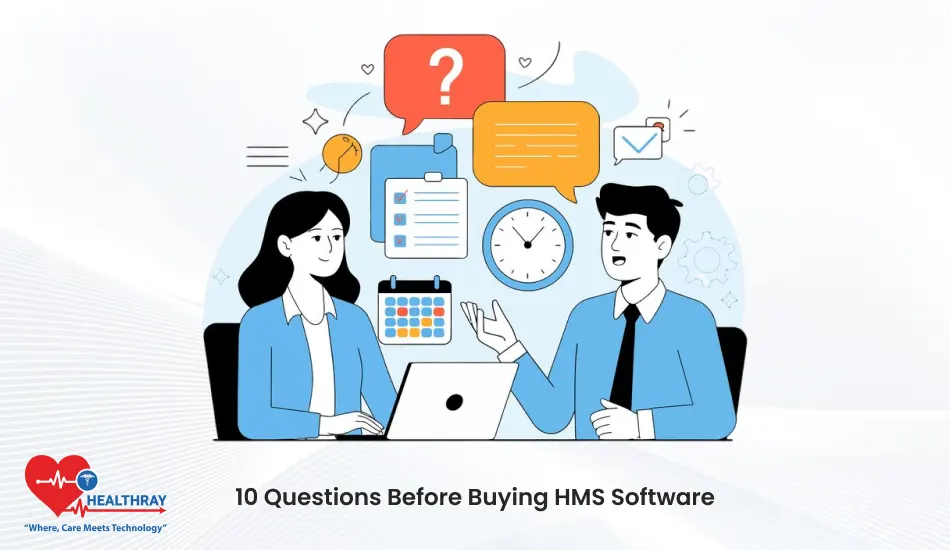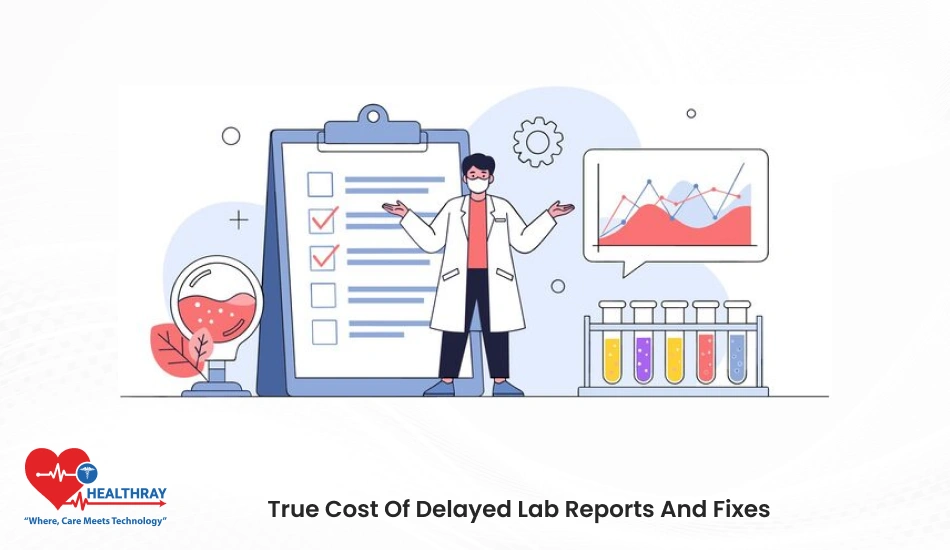Quick Summary Clinic software changes how patients connect with care. Simple tools like online booking, digital records, reminders, and clear messages reduce stress for patients and staff. Patients feel informed, and they show up on time. They follow treatment better, … Read More
Healthray Blog
Discover expert analyses, healthcare trends, and actionable insights designed to help you stay informed and make smarter health decisions with Healthray.
Role of HMS: Real Case Numbers
Quick Summary Healthcare is a critical sector as it affects the entire society. Still, healthcare workers and patients confront a lot of obstacles in the routine. More than 50% of healthcare professionals find difficulty in administering fragmented details. However, the … Read More
AI in Healthcare Software – How Healthray Leads
Quick Summary Healthcare tasks are itself a challenging predicament, the latest AI technologies makes it so much relief to healthcare staff. Addressing the global healthcare obstacles across departments, acts as a revolutionary force to reinvent clinical delivery. The AI hospital … Read More
Digital Labs 2026: Zero-Paper Future
Summary Across INDIA and the USA, diagnostic laboratories are under constant pressure to deliver faster results while maintaining accuracy, compliance, and transparency. Even though a high number of laboratories continue to use registers, paper records and disjointed digital devices, the … Read More
How a Doctor Appointment Calendar System Eliminates Scheduling Chaos
Summary Both India and the USA face a common challenge. Daily scheduling chaos, walk-ins, last-minute cancellations, and double bookings all contribute to a stressful and frustrating environment for both patients and staff members. To avoid such stressful situations, clinics should … Read More
Medical Scheduling Tools: How to Choose the Best One
Summary Late or mismanaged appointments are not just inconvenient. It slows down the diagnosis, disappoints the patients, and breaks their trust. Also, it quietly reduces the clinics’ revenue in India and the USA. The majority of healthcare facilities don’t take … Read More
How EMR Boosts Patient Engagement
Summary In both INDIA and the USA, physicians are still seeking methods to enable patients to become more proactive in their personal health. Clinics often try new digital tools, yet true EMR patient engagement begins only when the EMR becomes … Read More
The Silent Assistant: How Automated Appointment Reminders for Doctors Run Clinic on Time
Summary Is managing clinics on schedule difficult? Even after proper planning, clinics still face delays in their daily flow. Automated appointment reminders for doctors work as a silent assistant for clinics. This digital tool provides time-to-time updates to doctors, reduces … Read More
Doctor Availability management Software: Ending Overlaps, Delays & Cancellations
Summary Conventional doctor scheduling method creates upheaval in opd workflow from overlapping appointments to last-minute delays and unnecessary cancellations. In peak hours, situations become more challenging and it becomes difficult for doctors to handle multiple patients at the same time. … Read More
EMR Implementation Checklist – A Detailed Guide
Overview A new healthcare institution requires a custom-build healthcare solution, which turns overwhelmed workflows into the smart centered approach to tackle clinical activities for rendering excellent care. The EMR software, a future-ready clinical platform that requires strategic planning for implementing … Read More
10 Questions Before Buying HMS Software
Summary The hospitals now work in the context where speed, accuracy, and coordinated care is the definition of trust. Due to this change, the selection of the appropriate HMS will be a significant leadership choice, rather than a simple software … Read More
True Cost of Delayed Lab Reports and Fixes
Summary Late lab reports are not just inconvenient. They delay diagnoses, frustrate patients, destroy trust, and decrease clinics, hospital, and independent lab revenues in INDIA and the USA. This effect is not taken seriously by many labs since delays manifest … Read More
